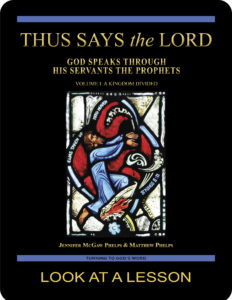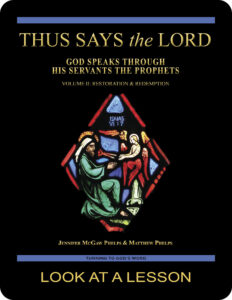son of man
 The Book of Daniel 7:13 (NABRE) contains the significant phrase “one like a son of man” later adopted by Jesus in the Gospels to describe himself. Interestingly, this phrase is of Aramaic origin. The Book of Daniel is one of the later writings of the Old Testament with some sections written in Hebrew and others in Aramaic, and this passage comes from the Aramaic section.
The Book of Daniel 7:13 (NABRE) contains the significant phrase “one like a son of man” later adopted by Jesus in the Gospels to describe himself. Interestingly, this phrase is of Aramaic origin. The Book of Daniel is one of the later writings of the Old Testament with some sections written in Hebrew and others in Aramaic, and this passage comes from the Aramaic section.
Both of the Aramaic words in this passage are found only in the Book of Daniel and the Book of Ezra, which also contains a section originally written in Aramaic. The word בַּר (bar) means “son” and is closely related to the Hebrew בֵּן (ben) with the same meaning. The word אֵנֶשׁ (enesh) means “mankind” or “humankind” but has a rather peculiar connotation. It comes from the Hebrew אֱנוֹשׁ (enosh), which itself comes from a root meaning “weak,” “sick,” or “frail.” This root view of humanity is one of weakness and mortality that gives fascinating insight into the Hebrew notion of what it means to be human. The general meaning and interpretation of the phrase “son of man” means a mortal being. Weakness and death are the essential characteristics of humanity. This is a much different view than Aristotle’s rational animal or the Christian view that later emerged.
In the context of Jesus Christ, this phrase takes on a different shade of meaning. While the implication of being the son of mortal beings is that that person is likewise mortal, that’s not necessarily the case. Jesus is human and the son of a human, but he himself is not mortal in the same way other humans are because he isn’t weak, hasn’t sinned, and isn’t subject to death. It would be inaccurate to describe him as human in that context because the base assumption about what that means doesn’t apply to him. The phrase “son of man” is a fascinating means of describing Jesus as human without explicitly attributing to him all of what that implies. This use also has import for us as Christians. Jesus fundamentally changes what it means to be human when he makes it possible for us to share in immortality, and so in a sense all of us as Christians are sons of men and sons of God.
you also may like our two-part study of the prophets

 Thus Says the LORD: God Speaks Through His Servants the Prophets—Volume I: A Kingdom Divided examines the prophets in their historical context using the First and Second Books of the Kings and other Old Testament passages written before the Babylonian Exile in 586 B.C. Volume II: Restoration & Redemption looks at the post-exilic prophets. This 51-lesson Catholic Bible study builds on The United Kingdom of Israel: Saul, David & Solomon Foreshadow Christ the King. Click on the books’ covers to view a sample lesson from each volume.
Thus Says the LORD: God Speaks Through His Servants the Prophets—Volume I: A Kingdom Divided examines the prophets in their historical context using the First and Second Books of the Kings and other Old Testament passages written before the Babylonian Exile in 586 B.C. Volume II: Restoration & Redemption looks at the post-exilic prophets. This 51-lesson Catholic Bible study builds on The United Kingdom of Israel: Saul, David & Solomon Foreshadow Christ the King. Click on the books’ covers to view a sample lesson from each volume.
 Click on the picture of the statue of Moses with horns (above) to learn more about Lost in Translation. A new entry is archived each Monday. Contact us to receive Lost in Translation by email every week. You may use any of the contact links on our website to ask Matthew a question.
Click on the picture of the statue of Moses with horns (above) to learn more about Lost in Translation. A new entry is archived each Monday. Contact us to receive Lost in Translation by email every week. You may use any of the contact links on our website to ask Matthew a question.
